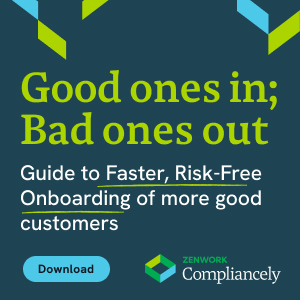
Importance of Digital Identity Verification in Banking
An overview of how different industries are coping with the soaring demand for identity verification and the importance of digital identity verification in different global industries.
Digital identity verification is proliferating its presence across a variety of industries. This is especially prominent across KYC-centric industries where an influx of profile onboarding is obvious. Lending, financial services, banking, e-commerce, and even the gig economy (a progressive industry at that) are adopting a broad range of identity verification solutions to accelerate profile approvals and assess risk.
Market intel suggests that this chasmic need for digitizing KYC-centric operations and providing seamless identity verification experiences to customers is a priority for most businesses in this decade. Many big players in the emerging markets have increased their spending on identity verification solutions, especially on digital identity verification solutions, where the automated verification processes are synced with the real-time digital infrastructure of their ecosystems.
Market projections suggest that digital identity verification is only going to spread its wings in emerging economic regions. This means businesses in the financial, banking, and consumer marketplaces will observe the highest impact.
The following will discuss in detail how identity verification transforms the KYC-centric operations for various industries.
Digital Identity Verification In Lending
The lending industry functions by providing financial assistance, such as loans and term credits to individuals and entities. In return, the financial institution or the agency that provides this financial support obtains mortgages. This financial dynamic sustains mutual faith, trust, and repayment capacity.
The lending companies usually screen the profiles prior to approving the term loans or credit schemes to ensure that the profile’s claims are in accordance with their legal status. For example, a person that is applying for a loan to repay another loan may not be approved for these schemes as their history with a mortgage is quite risky. Further, identity verification helps the lending company uncover these facts that are otherwise not revealed during the agreement sign-up.
Digital identity verification would create room for faster profile screening, claim validation, identity verification, and of course, risk assessment by streamlining the internal KYC processes. Lending companies can integrate the API solutions within their profile onboarding process and assess the profile for risk and value. The outcomes of the identity verification would decipher whether the profile is a good investment.
Digital Identity Verification In Banking
Money laundering, terror financing, and narcotics trafficking are now being operated through low-security or compromised banking networks. Many banks in recent history were prohibited from operating and even penalized by local and federal watchdogs for their active role in economic crimes [1] [2].
To counter such economic crimes, the U.S. has banned the operation of shell banking institutions and companies. This further reiterates the AML stance that the federal regulatory bodies in the U.S. have sought after. When you add up the counteracts, it helps you understand that the global economies have come together to fight money laundering and the use of financial institutions for illicit transactions.
Identity verification in the banking industry would help regulate the profile screening feasibility within reason, allowing private and commercial banks to identify their incoming customers and establish a fair relationship. Digital identity verification would further help the banks to future-proof the customer’s identities to ensure that the profiles do not have a history of engaging in unlawful economic crimes.
In the event where the profiles do show some potential risks or the accounts reflect unusual and suspicious activity, the banks have the power to report the account holder to law enforcement by submitting a Suspicious Activity Report. So, in a way, identity verification separates the liability on the bank and the high-risk customer and only holds accountable the party that willfully indulged in unlawful and illegal transactions.
Digital Identity Verification In Financial Services
Economical services provided by a variety of businesses including but not limited to credit unions, banks, credit-card companies, insurance companies, accountancy companies, consumer-finance companies, stock brokerages, investment funds, and more, collectively make up the financial services industry.
An industry this versatile has a variety of loops that ill-intended profiles are leveraging. Systemic money laundering operations are taking place through these financial institutions, bringing credible institutions to the brim of reputational and financial losses. Federal regulatory bodies have since mandated KYC compliance for businesses in the financial services industry, enabling the businesses to validate and verify the profiles on money laundering and terror-financing spectrums.
Further, this allows businesses to understand the potential risk a profile is bringing in during the onboarding process, enabling the business to be prepared for uneventful circumstances.
Additionally, identity verification in the digital era is allowing businesses to accelerate the profile verification and KYC compliance processes, reducing the workload on internal teams and streamlining the onboarding outlook.
What’s more? Digital identity verification API solutions like Compliancely are making these essential solutions accessible to businesses across various industries. This helps businesses customize the digital identity verification process according to the requirement and functions.
Digital Identity Verification In e-Commerce
E-commerce is the fastest emerging industry on its own, making it a reliable alternative to traditional marketplaces. E-commerce encompasses services and products alike, making it susceptible to identity fraud and affiliated risks. KYC compliance enables the businesses within the domestic ecosystem to avoid trading and partnering with high-risk vendors, manufacturers, white-label associates, and other intermediaries.
Even the Department of Commerce of the U.S. published a list of red flag indicators to consider while trading with foreign or external parties. By verifying the identities of the trading party and considering the common-sense logic of a bad deal, e-commerce entities can avoid being potential victims of identity fraud and illicit trading activity.
Digital identity verification enables e-commerce companies to validate the identities of partnering entities both in the domestic and foreign marketplaces. By conducting real-time identity checks, businesses can prevent engaging with sanctioned, restricted, denied, blocked, and prohibited individuals and entities.
Digital Identity Verification In Gig Economy
The gig economy or commonly known as the 1099 Economy comprises 36% of the U.S workforce, making it one of the biggest contributors to the economic revival during and after the pandemic. While the open-opportunity marketplace is certainly profiting, tax compliance or rather, the tax evasion scenario of the gig economy is putting many businesses at risk. This is due to the ambiguous terms of payments agreed by the vendor-business arrangements.
It is essential for the hiring businesses and the vendors to routinely verify the tax details, such as the TIN/EIN and name of the entity per the IRS records to check if the details match the official records. Real-time IRS TIN Matching from Compliancely can help you in this scenario.
Beyond this, retaining an unverified vendor or hiding incomes made through vendor-business arrangements could bring in tax non-compliance citations from the IRS, giving rise to civil liabilities and operational prohibitions.
Digital identity verification would help integrate the KYC procedures in the internal profile assessment operations of the business, making it easier for teams to identify, validate, and assess the risks and approve/disapprove vendors. The KYC compliance logic applies the other way around as well. Vendors too must ensure that they are engaging with compliant businesses that are in good standing with the IRS.
